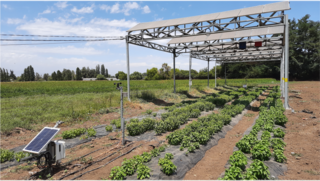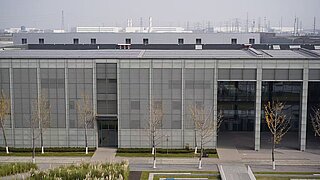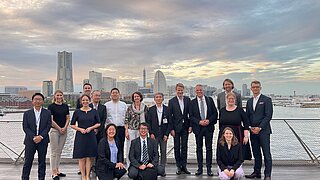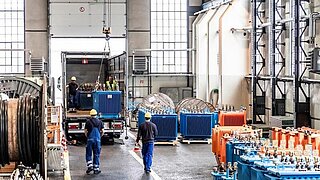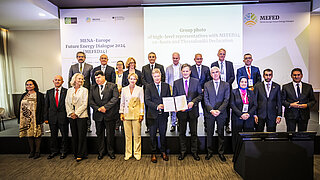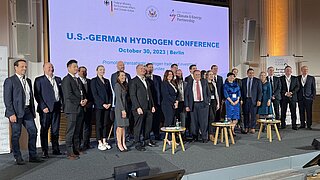Lowering emissions of buildings through policy exchange
In 2021, the Australian-German Energy and Climate Partnership highlighted Australia’s NABERS system as a model for improving energy efficiency in commercial buildings. Following this, the BMWK and German DENEFF began exploring how NABERS‘ success could inform the German policy development in the commercial building space.
Background
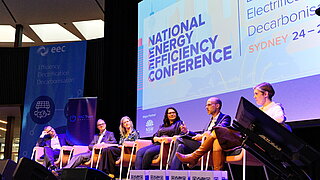
In summer 2021, the Energy Efficiency Working Group of the Energy and Climate Partnership published a report on the potential for cooperation between Australia and Germany in the building sector. Among other things, it recommended that Germany could learn from Australia in the area of energy efficiency in commercial buildings from the national NABERS programme (National Australian Built Environment Rating System). The NABERS team then published a Global Guide, which presented the success of the programme and how it works - also in German. NABERS Director Carlos Flores was also part of an Australian delegation to Berlin in June 2022.
Challenge and Goal
Accelerating the rate of energy performance improvement in Germany’s commercial building sector is a key priority. The rate of improvement in the energy performance of Germany’s commercial building stock has been slower than that achieved in the residential sector, for a number of reasons. Through Australia’s NABERS, Australian offices have benefitted from average energy savings of 42% and have reduced greenhouse gas emissions intensity by 53% over 14 years. The goal was for German policy makers and stakeholders in the building space to learn from the success of the scheme.

Action taken
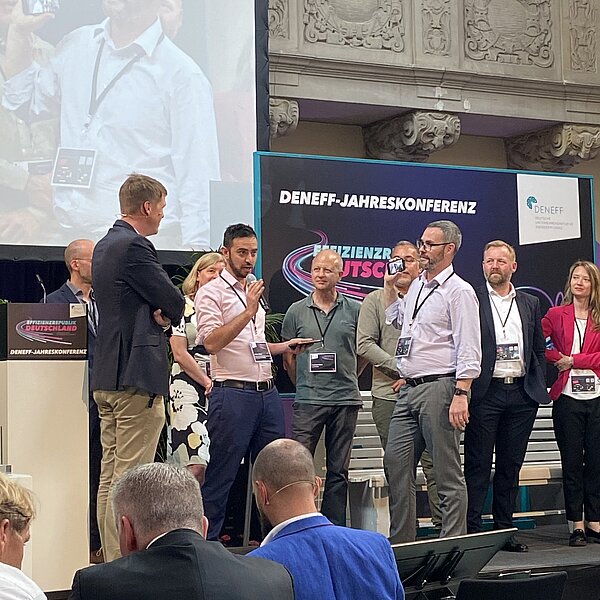
The NABERS team then published a Global Guide, which presents the success and how it works - also in German. NABERS Director Carlos Flores was also part of an Australian delegation to Berlin in June 2022. The German co-lead of the bilateral Working Group, DENEFF, has been working with the NABERS team over the past few years to advance work on a NABERS pilot in Germany and regularly informed interested stakeholders about the progress. This was followed by several exchanges between DENEFF, NABERS, and BMWK. DENEFF is currently driving forward policy work on a German NABERS and BMWK has also conducted a feasibility study to examine the extent to which NABERS and individual aspects of the system could be successful in Germany as well.
Impact
The collaboration potential outlined by the 2021 report from the Australian-German Energy and Climate Partnership showcases how Australia’s NABERS (National Australian Built Environment Rating System) model has driven substantial improvements in energy efficiency across commercial buildings. With Germany’s slower pace of energy performance gains in commercial buildings compared to the residential sector, this exchange offered Germany key insights. The NABERS programme has helped Australian offices reduce energy usage by an average of 42% and lower emissions intensity by 53%, which could serve as a blueprint for Germany’s goals in reducing carbon footprints in commercial properties.
Through the bilateral Working Group and with support of adelphi, there was active collaboration and exchange around this successful policy. The work regarding a potential adaptation for the German context is still ongoing.
